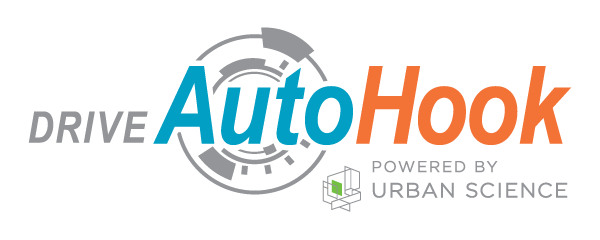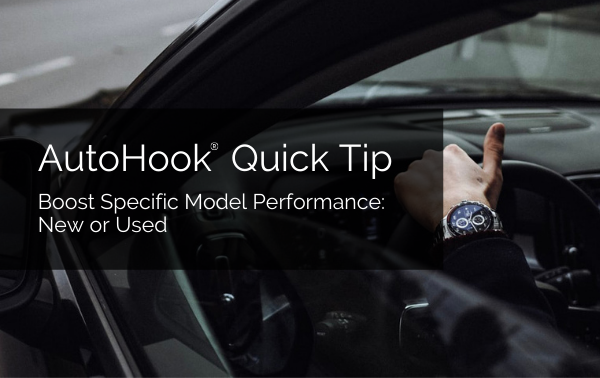If you have a smartphone, chances are you have Apple Wallet (formerly Passbook) or Google Wallet. These applications are mobile wallets that store, among other things, applications like Apple Pay that enable people to purchase things with their phones. Of course, it's very unlikely that anybody is going to purchase their vehicle by swiping their mobile device. For that reason, many dealers dismiss the notion that they need to know anything about mobile wallets.
However, mobile wallets are used for a lot more than just purchasing things. A mobile wallet is the digital equivalent to the physical wallets we carry in our pockets and purses. They can be used to store many things including drivers' licenses, social security cards, payment cards, login data for websites and loyalty cards. Mobile wallets are also used to store gift cards, coupons and authentication codes for boarding passes, public transport tickets, movie and sporting event tickets, and house and car keys.
For dealerships, the "keys" to getting your brand inside of a consumer's mobile wallet include loyalty cards, mobile advertising, coupons and special offers. The good news is, once you're in there you're likely to stay there, and your digital passcode can be easily updated so you can send customers push notifications offering them new coupons and specials.
Although mobile wallet usage is not yet mainstream, familiarity and usage have doubled since 2013, according to a recent study published by market research and consulting firm Chadwick Martin Bailey (CMB). Fifteen percent of respondents reported using a mobile wallet in the first half of 2015 and an additional 22 percent said they're likely to use it in the coming six months. If that's true, over one-third of consumers are now using their mobile wallets, at least on occasion.
This growing usage presents significant marketing opportunities for dealerships. Mobile wallets provide the perfect post-click destination for coupons, gift cards and incentives. Here are several ways that dealerships can leverage mobile wallets to ensure that your brand stays top-of-mind with consumers:
Digital Advertising
Early in 2015, Honda promoted its nationwide Honda Dream Garage Sales Event through a mobile wallet ad campaign that invited consumers to tap a banner ad and save the event to Apple’s Passbook (now Wallet) or Google Wallet. The mobile ads ran on ESPN.com, Allrecipes.com and the Washington Times. Once consumers stored the event, Honda sent reminders to them as the event date got closer. Individual dealerships could easily replicate this strategy.
Normal mobile ad campaigns can be forgotten soon after they are over. Mobile wallet marketing campaigns can be instantly updated to stay relevant to your customers' needs. Once your dealership has a digital passcode or "pass" into a customer's wallet, it's easy to push out reminders for a new promotion, much like Starbucks does.
Social Media and Mobile Apps
According to research firm Forrester, smartphone owners spend 80 percent of their time in five apps: Facebook, Maps, YouTube, Pandora and Gmail. For dealerships that advertise on Facebook, the growing adoption of mobile wallets will almost certainly result in higher click-through and redemption rates of Facebook ads. Here's why:
When a consumer is sitting at home or at work and surfing Facebook, they may see your dealership's coupon or offer, but may decide not to redeem it because they don't anticipate an immediate need, or they may forget about it as they continue to read their friends' updates. That consumer may remember later on, but the thought of having to go back to find and retrieve the offer or coupon is sometimes just enough of a deterrent that it doesn't happen.
When a consumer is checking Facebook with their mobile device, storing coupons and offers is a snap: just click on the ad or offer, click on a button that says "Add" and their mobile wallet stores the coupon or offer for future use. This makes it easy to store and organize a nearly endless supply of coupons and offers.
According to Vibes, a mobile wallet-marketing firm, 70 percent of consumers will save an offer to a mobile wallet when presented with the option and these offers have a 64 percent higher conversion rate over static mobile web coupons.
Location Targeting/Geo-Fencing
When a consumer stores a coupon, offer or event in their mobile wallet, your dealership has the ability to "ping" that customer when they enter a pre-defined area near your store. So if they stored information about your sales event and then drive by your dealership on the day of the event, they will receive a notification reminding them about the event. Or, if a consumer has stored a service coupon your dealership can send them a push notification reminding them about the coupon when that customer is within a one-mile radius of your store.
Loyalty Cards
This summer Apple confirmed it is bringing loyalty programs to Apple Pay, starting with retailers like Kohl's, Walgreens, JCPenney and Dunkin' Donuts. Could auto manufacturers be far behind? The ability to link a stored loyalty card to a local dealership's coupon, combined with the ability to notify customers about new offers, may create the "perfect storm" of incentives that will drive customers to your store.
Last year about this time, 2015 was being hailed as the year of the "mobile tsunami." I predict the next wave in 2016 will be the "mobile wallet tsunami." Innovative dealerships will be experimenting with digital advertising campaigns, social media ads and loyalty card programs. The goal is to get into the consumer's mobile wallet, which in effect gives your dealership permission to continue sending that consumer offers, coupons and gift card incentives.
A word of warning: this privilege should not be abused by sending out a continuous stream of push notifications and sales messaging. Instead, the mobile wallet should be viewed as a vehicle for building a long-term relationship with the customers that literally opened their wallet to let your dealership brand in.


















